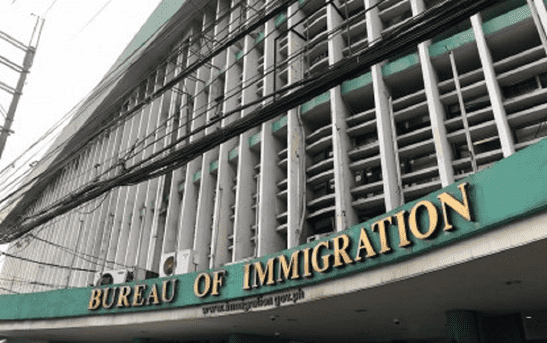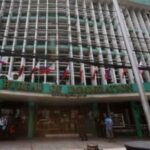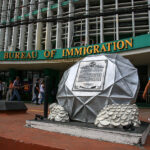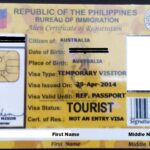Foreign nationals visiting the Philippines for short-term travel, business, family visits, or similar non-immigrant purposes may need a 9A Temporary Visitor Visa. This visa enables entry to the Philippines for a defined period. It can be obtained either through the new eVisa system or by applying directly at a Philippine Embassy or Consulate. Whether for leisure, medical treatment, or business meetings, understanding the 9A visa process ensures a smooth and legal visit.
What is a 9A Temporary Visitor Visa?
The 9A visa is a non-immigrant visa issued to foreign nationals visiting the Philippines for temporary, legitimate purposes. These include tourism, attending events or conferences, visiting relatives and friends, engaging in short-term business activities, or seeking medical care.
The visa is typically valid for up to 59 days, depending on the purpose of entry, and cannot be converted into another visa type nor extended if issued via the eVisa system. Applicants intending to stay beyond 59 days or convert to another visa type (e.g., work or residency) must apply through an in-person submission.
Who Can Apply for a 9A Visa?
The 9A visa is designed for nationals who plan to visit the Philippines temporarily for non-immigrant purposes. Common eligible applicants include:
- Tourists seeking leisure or family visits.
- Businesspersons attending meetings, contract negotiations, or trade events.
- Participants in conferences, workshops, or professional seminars.
- Individuals pursuing short-term educational or medical activities.
Japanese nationals, for instance, who wish to stay for more than the 30-day visa-free period must apply for a 9A visa before travel.
The Two Application Channels for 9A Visa
Applicants can now choose between two main routes: the online eVisa system or the traditional in-person application through the Philippine Embassy or Consulate. Selecting the correct route depends on the visit’s nature and future visa conversion needs.
- eVisa System
The eVisa platform (accessible at evisa.gov.ph) covers applications from residents of Japan applying for tourism or business visits. It offers the following categories:
- Single-entry 9A eVisa.
- Multiple-entry visa valid for six months.
- Multiple-entry visa valid for one year.
eVisas are digital visas, presented either electronically or in printed form upon arrival. They are not affixed to the passport and cannot be extended or converted to another visa type.
- In-Person or Representative Application
Applicants needing to extend their stay or convert their visa after arrival must apply in person, through a representative, or by post. These applications undergo processing at the nearest Philippine Embassy or Consulate and result in conventional visa stickers on passports.
Basic Requirements for a 9A Visa
To complete the 9A visa application, these core documents must be submitted :
- Confirmed appointment via the Embassy’s consular scheduling system (not required for eVisa).
- Valid passport (original + photocopy) with at least six months’ validity beyond the intended stay.
- Completed application form (FA Form No. 2) with signature matching the passport.
- One passport-size color photo, taken within the past three months, with neutral expression and plain white background.
- Proof of residence in the host country, such as a residence permit or alien card.
- Duly accomplished Undertaking Form (available from the Embassy).
- Flight itinerary showing round-trip tickets or onward travel.
- Accommodation proof, such as a hotel booking or invitation letter.
- Self-addressed return envelope for mailed applications.
For stays associated with school attendance, business activities, or medical visits, additional supporting documents are required.
Additional Requirements Based on Purpose of Travel
Applicants for a 9A Temporary Visitor Visa must prepare additional supporting documents depending on the specific purpose of their visit.
- Temporary Visitor for Tourism
Tourism applicants must provide proof of financial capacity to ensure they can sustain travel and accommodation expenses:
- With income or employment:
- Recent bank certificate or updated passbook showing regular deposits.
- Without income or employment:
- Letter of Guarantee from a spouse, parent, or sponsor.
- Copy of the sponsor’s valid ID and the latest bank statement or certificate.
Applicants must also provide proof of current occupation, such as:
- Certificate of enrollment (for students).
- Certificate of employment (for company employees).
- Business registration certificate (for self-employed applicants, with English translation).
- Retirement statement (for retirees or unemployed applicants).
- Temporary Visitor for Business
Eligible applicants under this category include business travelers visiting Philippine counterparts or attending corporate events. Additional documentation includes:
- If dispatched by a foreign-based employer:
- Letter of Endorsement on company letterhead, confirming employment, trip purpose, travel details, and accommodation.
- If invited by a Philippine company:
- Official Letter of Invitation from a Philippine enterprise on company letterhead, referencing contact details, purpose, dates, and confirmation of compliance with Philippine law.
The business invitation should also state responsibility for the visitor’s expenses when applicable.
- Temporary Visitor for Short-Term Study or Training
Those attending short study or language courses in the Philippines must present:
- A certificate of enrollment or acceptance, issued on official school letterhead, specifying course details and accommodation.
- Copy of business permit from the Philippine school or institution.
- Financial proof from parents (if underage) and family registry to confirm the relationship.
Important Notes and Restrictions
The 9A visa is strictly for temporary stays. The following limitations apply:
- Visa holders cannot engage in employment, professional practice, or full-time study without appropriate immigration permits.
- Those earning income from Philippine sources must secure a Special Work Permit (SWP) or coordinate with the local office counterpart for compliance.
- eVisas cannot be extended or converted into other visa types after arrival.
For stays longer than 59 days or those involving work or long-term study, the applicant must apply under a separate visa category (e.g., 9G Pre-arranged Employment Visa or 9F Student Visa).
Step-by-Step 9A Visa Application Process
Understanding each phase of the application process helps ensure a smooth, efficient experience and reduces the risk of delays or denials.
Step 1: Determine the Type of Application
Decide whether to use the eVisa system or the in-person embassy route based on your purpose of travel, location, and potential future visa conversion plans.
Step 2: Prepare Required Documents
Gather all mandatory documents, including flight confirmations, proof of accommodations, and valid financial or employment certifications. Ensure all documents are in English or properly translated.
Step 3: Submit the Application and Pay Fees
- For eVisa applications: Submit digitally via the eVisa system at evisa.gov.ph and upload scanned documents.
- For in-person applications: Schedule an appointment and submit required papers physically at the Embassy, paying the prescribed application fees.
Step 4: Attend Appointment (if required)
Certain applicants may be asked to attend a brief interview or verification step. Always bring complete original copies of submitted documents.
Step 5: Receive Visa or eVisa Approval
- eVisa: A digital copy is sent via email for printing or electronic presentation at the port of entry.
- In-person: A visa sticker is affixed to the passport, valid for up to 59 days.
Validity and Extensions
- Single-entry visas are typically valid for a 59-day stay.
- Multiple-entry eVisas may last for 6 months or 1 year (valid for multiple entries but with each stay limited to 59 days).
- Visa extension is unavailable for eVisas; only in-person issued 9A visas may qualify for extension through coordination with the Bureau of Immigration.
Tips for a Smooth 9A Visa Application
- Review all documents before submission; missing files often cause delays.
- Ensure names match exactly as reflected on your passport.
- Present accurate flight and accommodation details.
- Sponsors should provide notarized letters guaranteeing financial and legal responsibility for the visitor.
- Submit applications early, at least two to three weeks before planned travel.
Final Thoughts
The 9A Temporary Visitor Visa serves as an accessible gateway for foreign travelers to enter the Philippines legally for tourism, business, and other short-term purposes. With new digital advancements such as the eVisa platform, the process is now faster and more convenient, though applicants must still ensure compliance with documentary and purpose-based requirements.
Whether visiting family, attending a business meeting, or exploring the country, the 9A visa provides a clear legal path for temporary entry. For complex or long-term plans, consulting visa experts ensures correct visa selection and compliance with Philippine immigration standards.
Need Assistance with Your 9A Visa Application?
Work Visa Philippines provides expert support for 9A visa applications and renewals, helping clients handle document preparation, embassy coordination, and compliance with the Bureau of Immigration. Whether you choose the eVisa route or in-person processing, our team ensures timely and accurate execution. Contact us today:
- Contact Us Here
- Fill Out the Form Below
- Call us at +63 (02) 8540-9623





